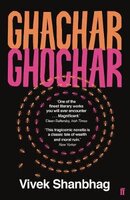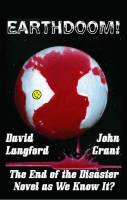It’s time for another trio of reviews that were first posted on my Instagram.
Alex Pheby, Lucia (2018)

I have quite a few unread Galley Beggar Press books, and I was in the mood to start changing that. So I picked up Lucia by Alex Pheby, which won the Republic of Consciousness Prize a couple of years ago.
This novel concerns Lucia Joyce, James Joyce’s daughter. I didn’t know much about her, beyond what it says in the cover blurb: she was a talented dancer, spent her last 30 years in an asylum, and most contemporary references to her have been lost to history.
Pheby confronts head-on the problems of what it means to write a real life into fiction. The structure is fragmented, with fragments written from a variety of viewpoints – this is a novel told around and to Lucia, not by her. Interspersed between chapters are sequences describing an Egyptian archaeological dig, and the process of mummification – the implication being that the act of writing about Lucia is a similar disturbance.
Much of what happens in the novel is traumatic for Lucia, and this is uncomfortable to read, as it should be. Overall, I found this book a powerful reading experience, and I appreciated that Pheby made the problem of what he was doing part of the novel itself.
Flynn Coleman, A Human Algorithm (2019)

This book is a look at some of the issues around artificial intelligence. Flynn Coleman is a human rights attorney, and her book is very much focused on the ethical implications of AI and what it might mean for us as humans.
This is not a subject I know much about, and I appreciate that Coleman is posing questions at least as much as trying to come up with answers – the book seems meant as a starting point for a conversation rather than a definitive conclusion.
It seems to me that Coleman is pretty even-handed in considering both the potential benefits and drawbacks of AI. She’s clear, though, that it’s urgent for us to be thinking about issues such as how we might instil morals into machines (and whose morals they should be), because the technology will continue to develop in any case.
I like the range of Coleman’s book, and it left me with a lot to think about, which is what I wanted most of all from it. If the subject piques your interest, A Human Algorithm is well worth your time.
Published by Melville House UK.
Vivek Shanbhag, Ghachar Ghochar (2013)
Translated from the Kannada by Srinath Perar (2017)

The narrator of this short novel is a director of his family’s spice business in Bangalore, though it’s so successful that he doesn’t need to do any work. His uncle built the firm up, transforming the family’s fortunes in the process – though money has not solved all their problems.
The narrator structures his story around the hierarchy of his household, with his uncle at the top and himself somewhere towards the bottom. This has the effect of making the novel feel like a series of anecdotes, and there are some engaging episodes, such as the family’s attempts to deal with an ant infestation in their old shack. But this book is more than a yarn: the narrator is not telling us everything.
His wife, Anita, is often at odds with the rest of the family – she wasn’t too happy to discover that her husband earned no money for himself, for example. The particular incident on which the book pivots is when a woman arrives at the house asking to speak to the uncle, and is summarily sent away by the narrator’s mother. Anita is the only family member who feels the woman was treated badly, and tells her husband that he should have intervened. The ramifications of this play out across the novel.
Within the book, “ghachar ghochar” is a phrase invented by Anita to mean “hopelessly tangled up”. That’s what the narrator comes to feel his life is like, and with good reason. Vivek Shanbhag examines the implications of his characters looking away from what they don’t want to see.
Published by Faber & Faber.
 Matthias Politycki’s Next World Novella (translated from the German by Anthea Bell) is the latest title from
Matthias Politycki’s Next World Novella (translated from the German by Anthea Bell) is the latest title from  A brilliant fusion of biography, social history, and history of science, that tells a fascinating story. Henrietta Lacks was a poor African American woman who died of cervical cancer in 1951; as with other cancer patients at Baltimore’s Johns Hopkins Hospital, a sample of the cells from Henrietta’s tumour was taken, without her knowledge, for research purposes. Those cells were the origin of the HeLa cell line, the first human one to be propagated successfully in the lab (‘immortal’ because they can divide indefinitely in culture). Henrietta’s cells facilitated many medical advances, but it was twenty years before her family even learnt that a sample had been taken.
A brilliant fusion of biography, social history, and history of science, that tells a fascinating story. Henrietta Lacks was a poor African American woman who died of cervical cancer in 1951; as with other cancer patients at Baltimore’s Johns Hopkins Hospital, a sample of the cells from Henrietta’s tumour was taken, without her knowledge, for research purposes. Those cells were the origin of the HeLa cell line, the first human one to be propagated successfully in the lab (‘immortal’ because they can divide indefinitely in culture). Henrietta’s cells facilitated many medical advances, but it was twenty years before her family even learnt that a sample had been taken.











Recent Comments